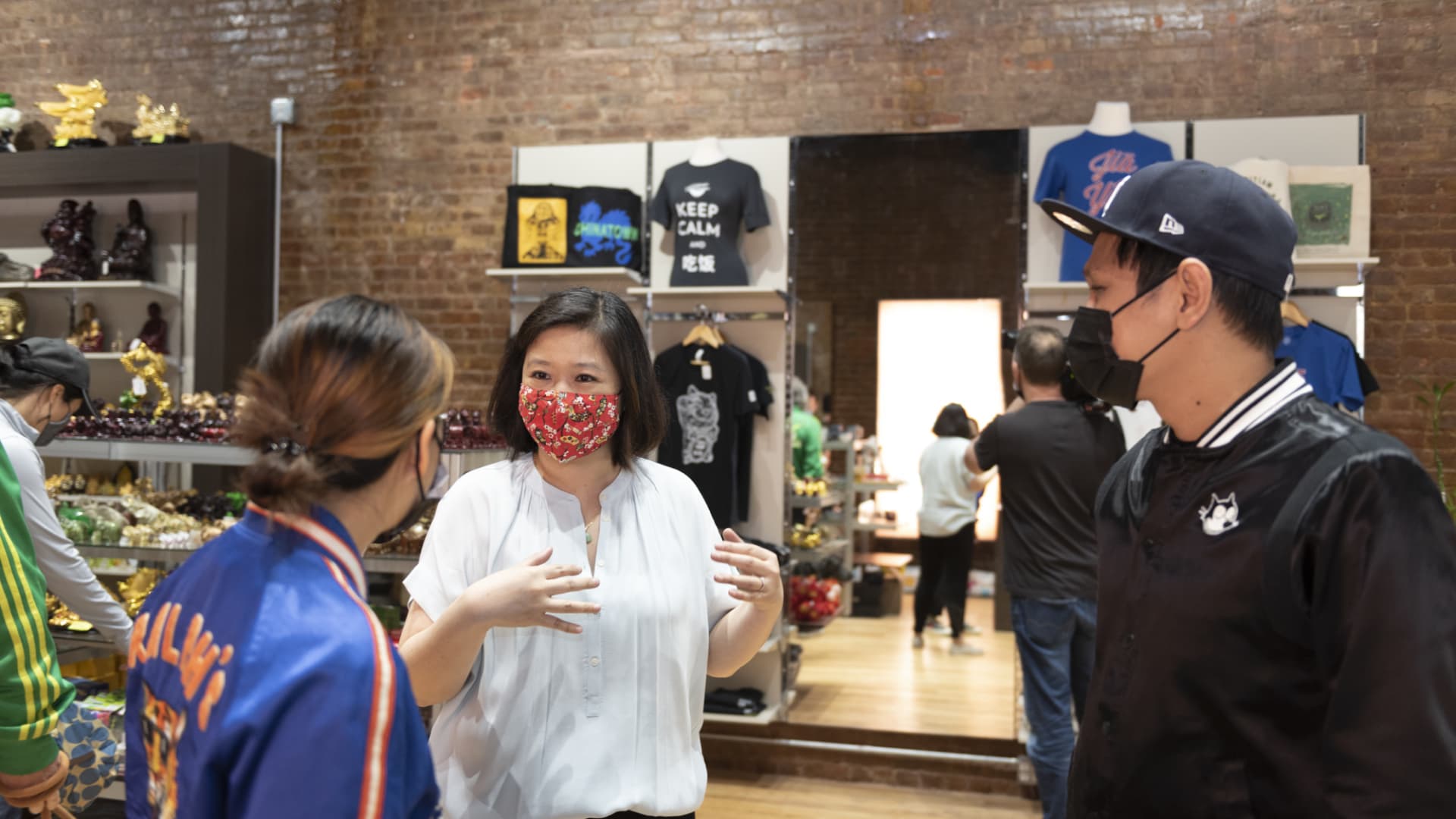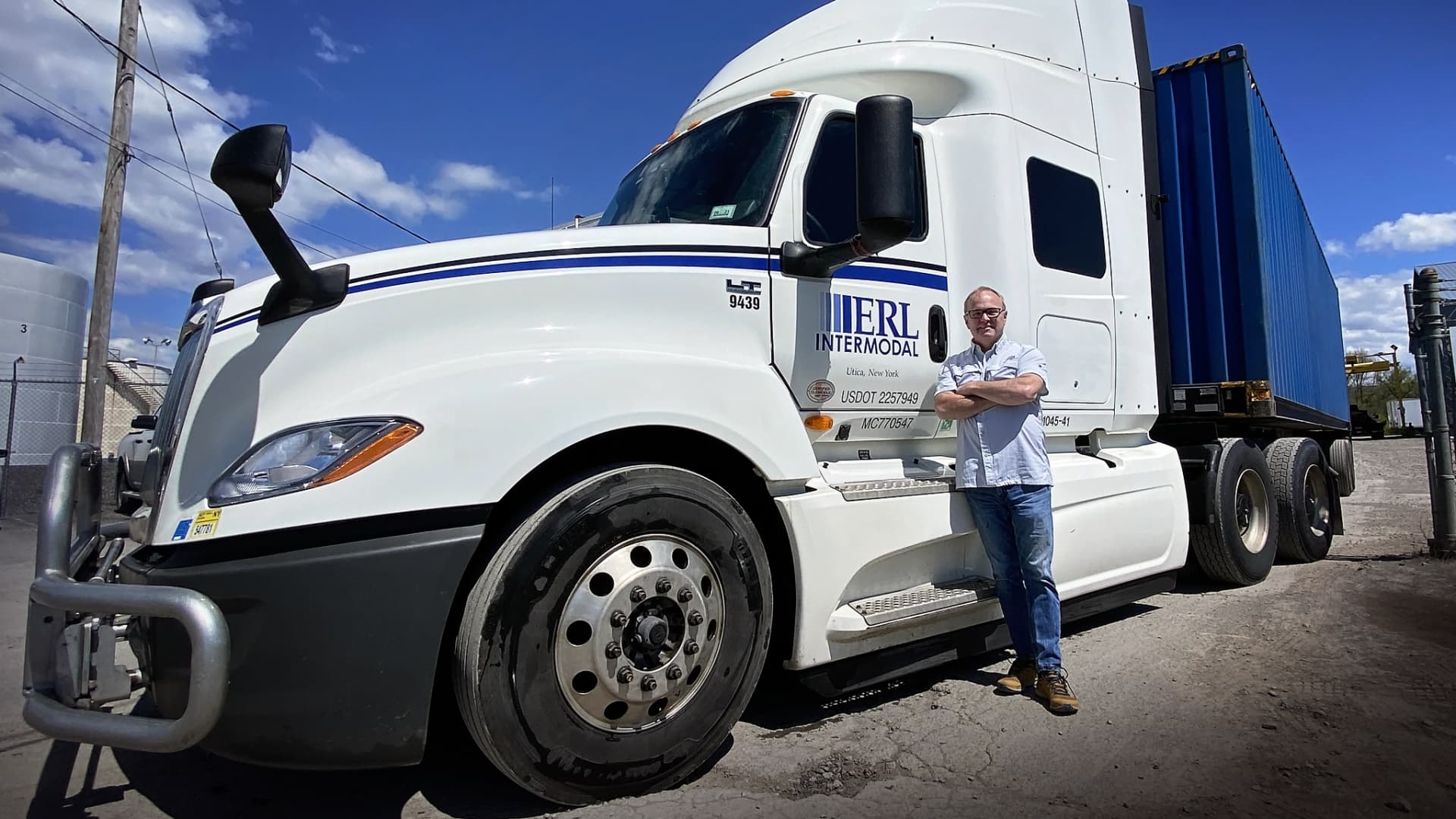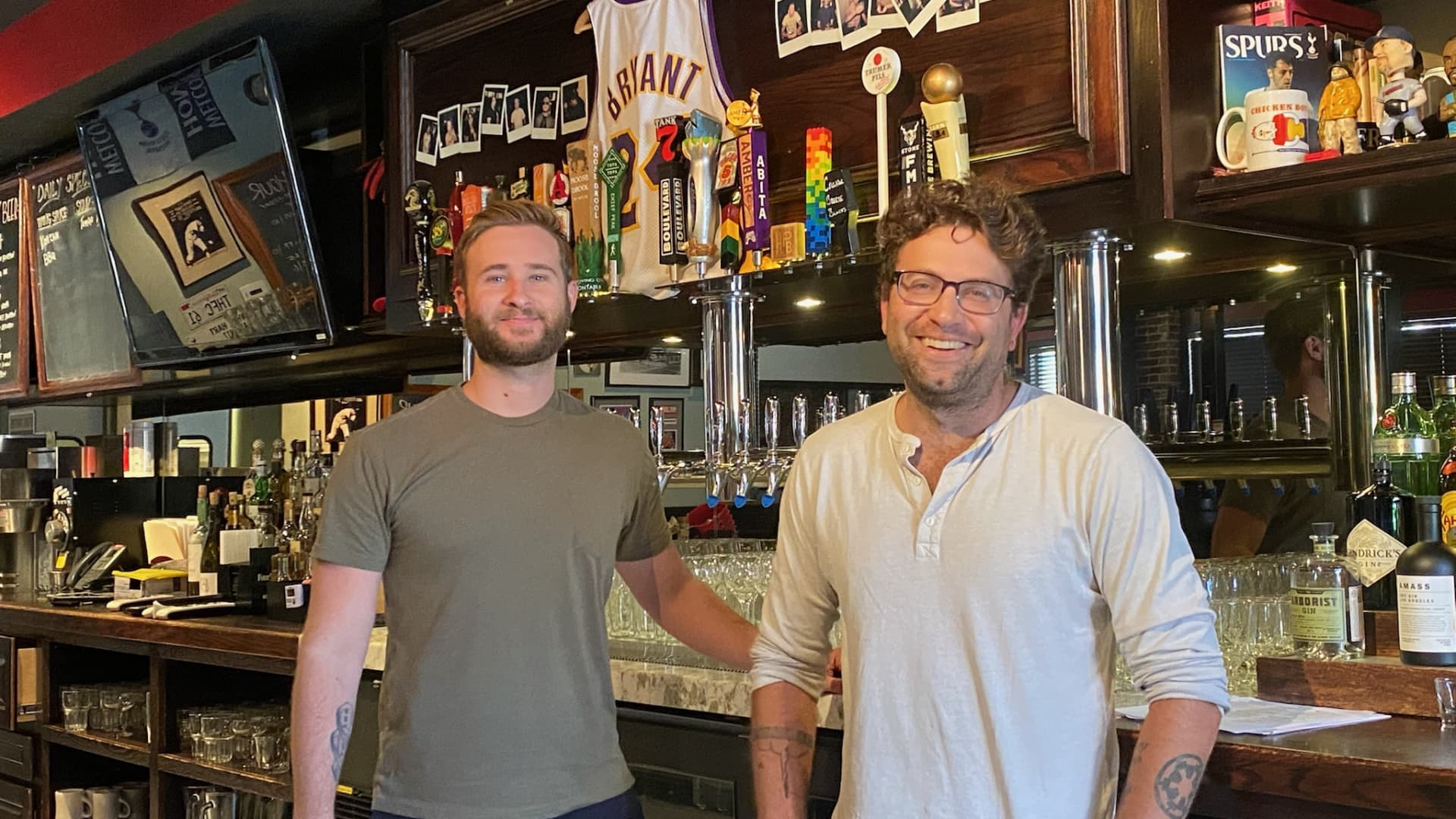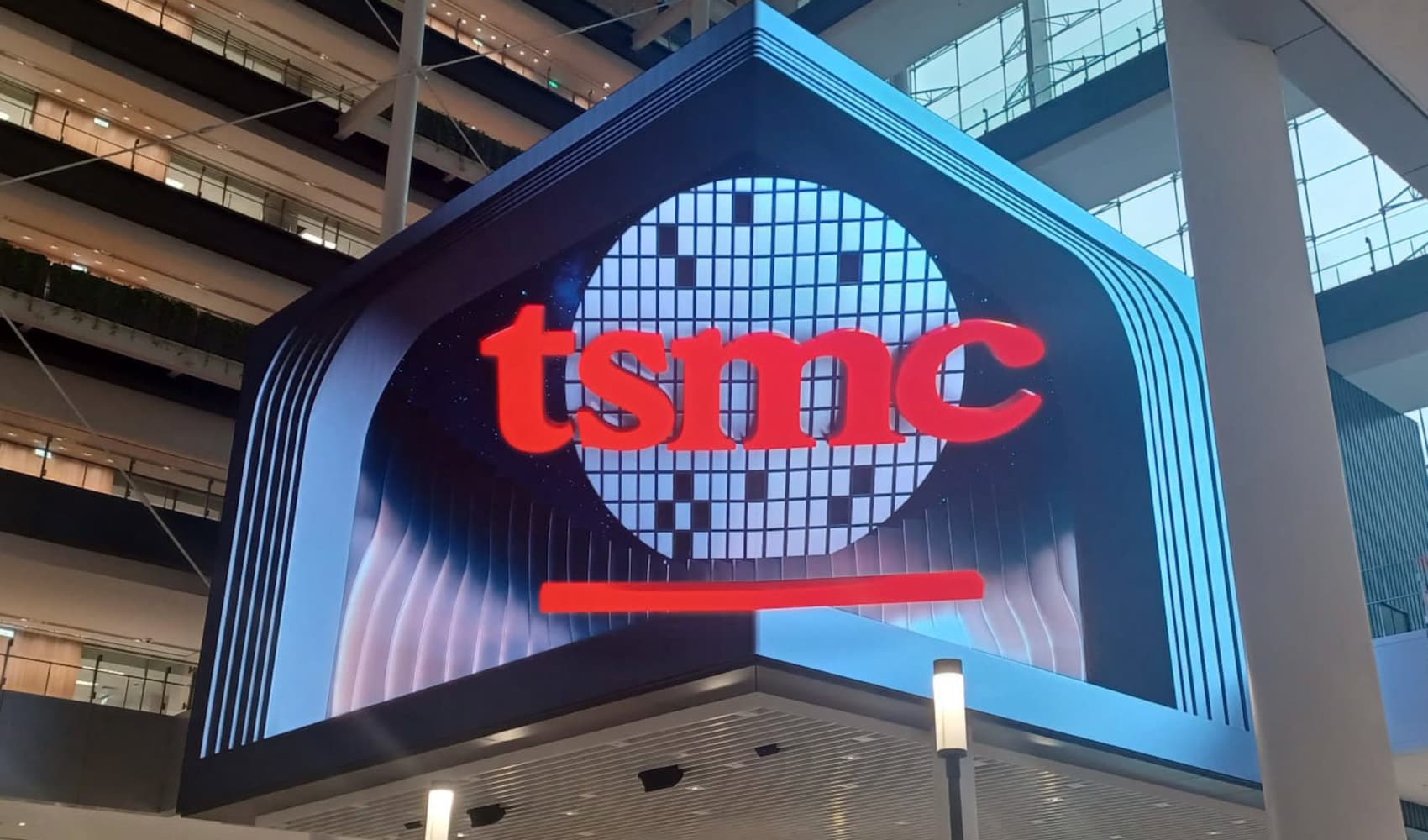

She managed to keep her bakery business afloat during the pandemic, but now Sophie Evanoff, owner of Vanille Patisserie in Chicago, can't keep up with demand.
The culprit: her inability to find workers.
"It is to the point where we are turning down orders," Evanoff said.
Get New England news, weather forecasts and entertainment stories to your inbox. Sign up for NECN newsletters.
She has 20 employees at her main location and needs about eight to 10 more. She hasn't reopened her second, marketplace location at the city's Ogilvie Transportation Center because she has no staff.
She had even boosted pay by 20%, she said. Still, no luck.
"We are not turning a profit," Evanoff said.
Money Report
She blames the added government benefits, like the extra $300 in unemployment and stimulus checks, for keeping workers away, as well as people leaving the industry during the shutdown.
The impact of unemployment pay's role on the worker shortage in industries across the nation, however, is up for debate. Last week's weaker-than-expected jobs report led many to blame the government benefits.
Yet economists argue it is more nuanced than that. Other reasons may include lack of child care for kids still attending school virtually, at least some of the time, as well as trepidation over the virus.
In addition, research last year found an extremely limited effect of the $600 benefit in discouraging workers from finding jobs.
From students to seniors, workers stay away
At Alstede Farms in Chester, New Jersey, owner Kurt Alstede is also having trouble finding help. He typically has a staff of 30 year-round but really ramps up seasonal hiring by about 200 in the spring.
Alstede said he's getting a fraction of the applications he usually does from college students, as well as senior citizens and everyone in between. He chalks it up to a number of reasons, including students who were learning virtually from home all year and therefore already have a job and parents who are unable to work.
Alstede also hires workers from other countries and, this year, there have been issues with visas, he said.
More from Invest in You:
Huge opportunities await women entrepreneurs. Here's what to do
Covid and racism is hurting many Asian-owned small businesses
PPP has run out of money for most borrowers. What you need to know
The result is a heavier load on his already burdened staff. Alstede was considered an essential business and stayed open throughout the pandemic.
"The people who are here, that are the backbone of the business, are going to get exhausted and they are coming off a year of exhaustion," Alstede said.
The competition for the limited supply of workers is also going to impact consumers' wallets.
"Wages are going up and we've adjusted prices to reflect that," said Alstede, who has raised worker pay by about 20%.
Anti-Asian hate

Joanne Kwong, president of family run Pearl River Mart in New York, has another issue to deal with when hiring workers: concern over commuting safety.
The business, a collection of emporiums that sell Asian goods, largely employs Asian-American workers. The recent outbreak of anti-Asian hate incidents made scheduling her current employees difficult, since some want to avoid the city's subways. She's also had to change the stores' hours so that they close before dark.
The response to her job postings has been "crickets," Kwong said.
"It's always hard to find people, but we always had a steady drumbeat of candidates to choose from."
To be sure, that isn't the only reason she feels the hiring crunch. Potential workers may live in multi-generational households where everyone isn't yet vaccinated and parents have child-care concerns, she said.
"The commute, the fear of the virus and just maybe having a safety net at home has prevented Asian-Americans from, perhaps, applying to a job," she said.
Truck drivers wanted

Even before the pandemic, there was a shortage of truck drivers. Covid has just added to the scarcity of workers, said Steve Sperbeck, general manager for ERL Intermodal, based in Utica, New York.
Even though the company pays drivers anywhere from about $70,000 to $130,000 a year, Sperbeck still has seven or eight trucks, out of 50, without drivers.
While the $600 bonus unemployment pay may have hurt hiring last year, he doesn't think the $300 is having much of an impact. Instead, he thinks it may be in part to fear of exposure to the virus, as well as an aging trucker workforce.
It's even affecting the company's possible expansion. Sperbeck said he could add 50 more trucks, thanks to the demand, if he had the drivers.
"There is so much freight volume," said Sperbeck, who attributes it largely to a consumer buying spree.
ERL Intermodal is now turning to driving schools to find workers, which involves additional training costs for the company. They are also offering signing bonuses.
"We have never had to do that before," Sperbeck said. "We used to have the pick of the litter."
Restaurants hit hard

Restaurants are among those particularly hard hit by the labor shortage.
In Los Angeles, Matt Glassman, owner of The Greyhound Bar & Grill, described an unbelievable amount of people scheduling interviews and not even showing up. He recently hired two dishwashers, and one left before even clocking in for his first training shift.
People who earn a large portion of their income through tips may also be wary about returning to the industry, since businesses may not be at full capacity yet.
One restaurateur thinks he has the answer to that problem.
James Mallios, managing partner of Civetta Hospitality, started charging an administration fee of 18% over the course of the last year at three of his New York City area restaurants: Amali in Manhattan, Bar Marseille in Queens and Calissa in the Hamptons, on Long Island's East End. The fee is a replacement for tips, although customers can add more gratuity to the bill if so inclined, he said.
That enabled Mallios to pay his staff between $20 and $55 an hour, so they aren't dependent on how busy or quiet it is on any given night, he said. The company has maintained 40 to 50 employees since June 2020 and recently was able to hire staff for a new location opening soon.
"I can't even fathom if we did it a different way," Mallios said.
"The business has been so up and down," he added. "In what world does someone accept a job where they get a 50% or more swing in compensation from week to week?"
SIGN UP: Money 101 is an 8-week learning course to financial freedom, delivered weekly to your inbox.
CHECK OUT: Millennial with 6-figure side hustle: 'I've made more in the past year than I ever made at my full-time job' via Grow with Acorns+CNBC via Grow with Acorns+CNBC.
Disclosure: NBCUniversal and Comcast Ventures are investors in Acorns.






